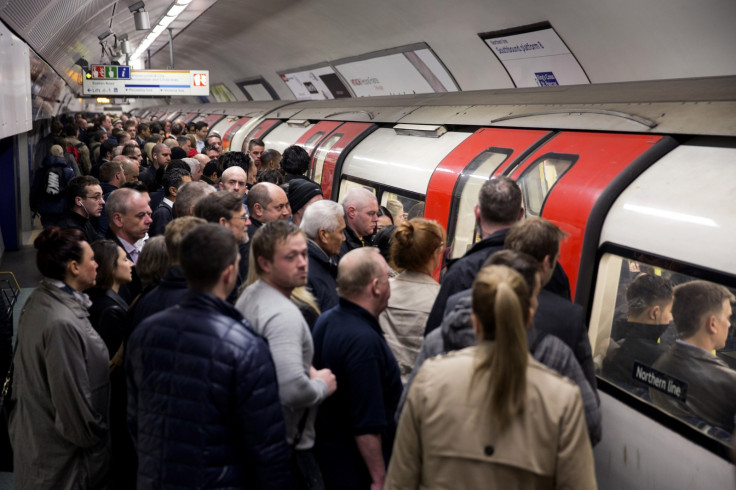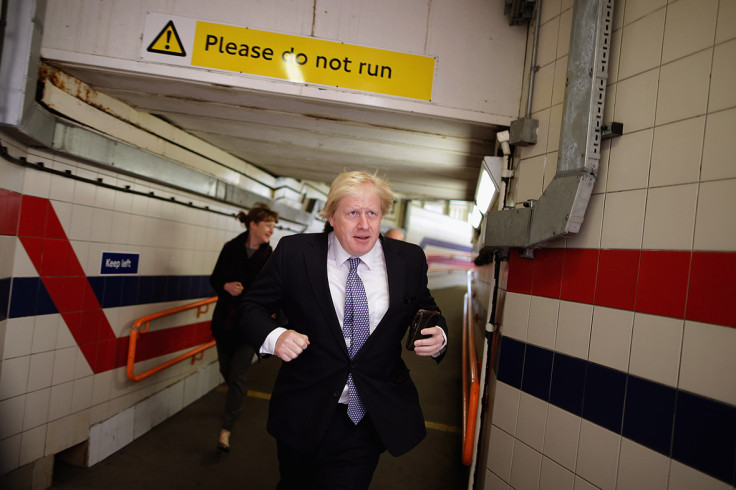London Tube strike: Why can't we sack striking transport workers?

As London's transport workers prepare to walk out yet again in an ongoing dispute with London Underground over its Night Tube plans, some frustrated members of the public and political commentariat have decided enough is enough. Never mind support the workers, they say. Sack the workers instead.
This anger is born out of miserable commutes, disruption to day-to-day business, and a winding financial punch to the gut of some small firms that rely on heavy London footfall each day – gifted by smooth-running public transport services – to stay afloat.
In 1981, former US president Ronald Reagan sacked over 11,000 striking air traffic controllers in one go after months of dispute and illegal strikes. Citing Reagan's action, LBC radio presenter Andrew Pierce declared it is "to do same with militant Tube drivers".
That's the whole point in having the right to strike – it's that you don't get sacked for exercising that right
And this is a question some are asking: why can't we just sack striking Tube workers? But if Mayor of London Boris Johnson is getting any ideas, he may run into the Trade Union and Labour Relations (Consolidation) Act 1992, which enshrines the right to strike.
"Notwithstanding a government that's not very union friendly, there is protection on the statute books that the Tories are not suggesting they'll change which says that it's specifically illegal to sack somebody if the reason for sacking them is that they've gone on strike," said Sarah Veale, head of the equality and employment rights department at the Trades Union Congress (TUC), to IBTimes UK.
"That's the whole point in having the right to strike – it's that you don't get sacked for exercising that right. And even with all the changes they're proposing in this Trades Union Bill, that would still be the case."
Those sacked for striking can go to an employment tribunal – though thanks to changes by the recent coalition government, they will have to pay to do so – where if a decision goes their way, they will be reinstated and possibly owed costs and compensation to boot. However, could the Conservatives simply change the law?

Prime Minister David Cameron would have to get draconian anti-strike legislation through parliament. He commands a fairly weak majority in the House of Commons and it is not clear that all those on his own benches would even agree with such measures. Let alone Labour, the SNP and other parties on the opposition benches.
Neither is it clear that he would have any mandate to do so. In his 2015 manifesto, he did include stricter strike laws under his new Trades Union Bill, including a turnout threshold for union ballots, but to de facto or explicitly outlaw striking would be out of step with public opinion.
When read the statement "trade unions have too much power in Britain today" by pollster Ipsos Mori in February 2014, only 29% of Britons agreed against 54% who disagreed. Moreover, when read the statement "trade unions are essential to protect workers' interests", 77% agreed and just 14% disagreed. Though the public may disagree with individual strike actions, it seems to still believe in strong unions, so would be unlikely to support an outright removal of the right to strike. And you can bet unions would put up some strong resistance to such moves, too.
On top of this, there is also the practical problem of sacking almost all of your workforce in one go. It takes six months to train Tube drivers. So that is several months of huge disruption to London Underground and all the knock-on effects it entails.
And it is not just drivers who have gone on strike. There are also station staff, maintenance workers, signal operators and others who have walked out. All of those would need to be replaced, too. Even if you believe in sacking those on strike, the fact that you cannot immediately replace them should convince you it is a terrible idea.

The right to strike helps balance out the power held over them by employers. It is a powerful tool that has in British history won some crucial victories for working people, from higher pay to safer working spaces to better conditions. They effectively redistribute money from capital to labour by forcing a greater share of profits to wage increases, though this can come at the expense of the pace of new job creation. And, as influential French economist Thomas Piketty notes in his book The Economics Of Inequality, unions "have at times served to promote economic efficiency".
It is hallmark of far-right regimes down the years that they sack people for joining unions and exercising their fundamental human right to withdraw their labour
He wrote: "By representing workers, they facilitate better communication within the firm. Furthermore, the binding wage schedules negotiated by unions can under certain conditions be positive forces in themselves.
"For instance, human capital theory neglects the fact that a worker's skills and work habits are not necessarily qualities universally recognised by the market, which the worker can sell freely to whatever firm he chooses."
In short, some of his skills and qualities may be firm-specific, so mean little or nothing on the open market. That means he cannot compete for higher wages by seeking work elsewhere, so relies on a union to drive up his wages and better his working conditions. You could draw a parallel with some of the staff trained specifically to work on the London Underground system.
The RMT union, which represents many of those walking out in the Tube dispute, was unimpressed by suggestions workers should be sacked for striking.
A spokesman told IBTimes UK: "It is hallmark of far-right regimes down the years that they sack people for joining unions and exercising their fundamental human right to withdraw their labour. Although that may be the demand of some on the extreme political fringes, it would drag us to the edge of totalitarian system where workers are just wage slaves at the behest of the bosses.
"RMT has said throughout that we oppose a race to the bottom on pay and conditions and we support all groups of workers prepared to stand up and fight instead of being ground into the dirt under the employers' heel."
© Copyright IBTimes 2025. All rights reserved.






















